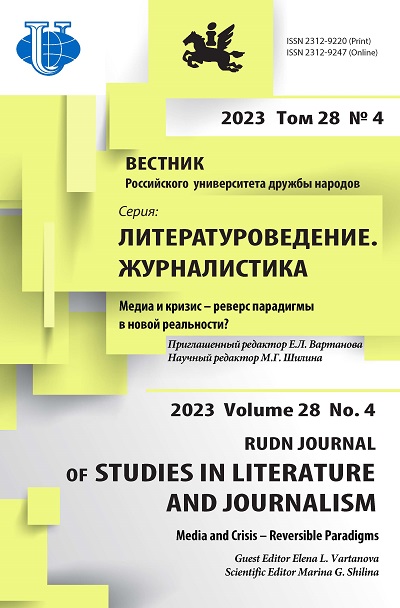The world of childhood in Zahar Prilepin’s novel “Pathologies”
- Authors: Guseva EV1
-
Affiliations:
- Peoples’ Friendship University of Russia
- Issue: No 3 (2013)
- Pages: 32-41
- Section: Articles
- URL: https://journals.rudn.ru/literary-criticism/article/view/4385
Cite item
Full Text
Abstract
The article deals with the evocation of childhood in the novel by Zahar Prilepin “Pathologies”. Children’s images are very important for all Prilepin’s works, in his first novel about warfare the author starts the theme of childhood, which is philosophical as well as psychological. In “Pathologies” we can see the world of childhood and imagination contrasted with the world of war and terror. The force of memory makes it possible to bring back events and situations which seemed to be buried in the past. With the help of memory Prilepin’s characters return to the first years of their lives trying to find safety and freedom. Almost all of these characters have some qualities, more typical for children, not for adults. For example, the hero of “Pathologies”, Egor Tachevsky has rich imagination and sincerity of a child, but on the other hand he is somewhat infantile and egoistic. On the whole, the importance of childhood in the life of every person is constantly marked by the writer. The conception of childhood in Prilepin’s works means not only the concrete period of time or some growing up people. It is also the symbol of tomorrow, the sign of future. This meaning is revealed in the first scene of “Pathologies”, where the main character of the book saves his foster-son from death.
References
















